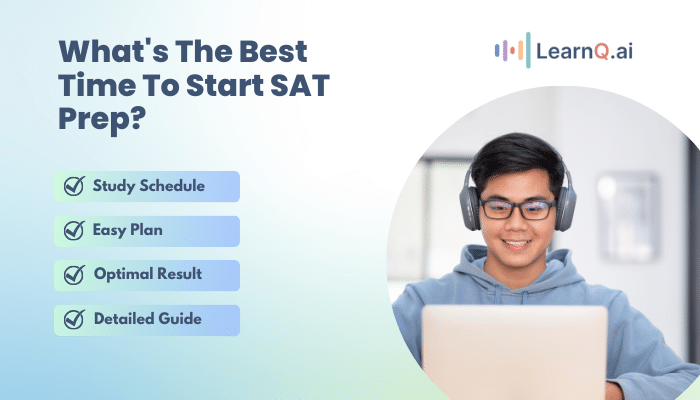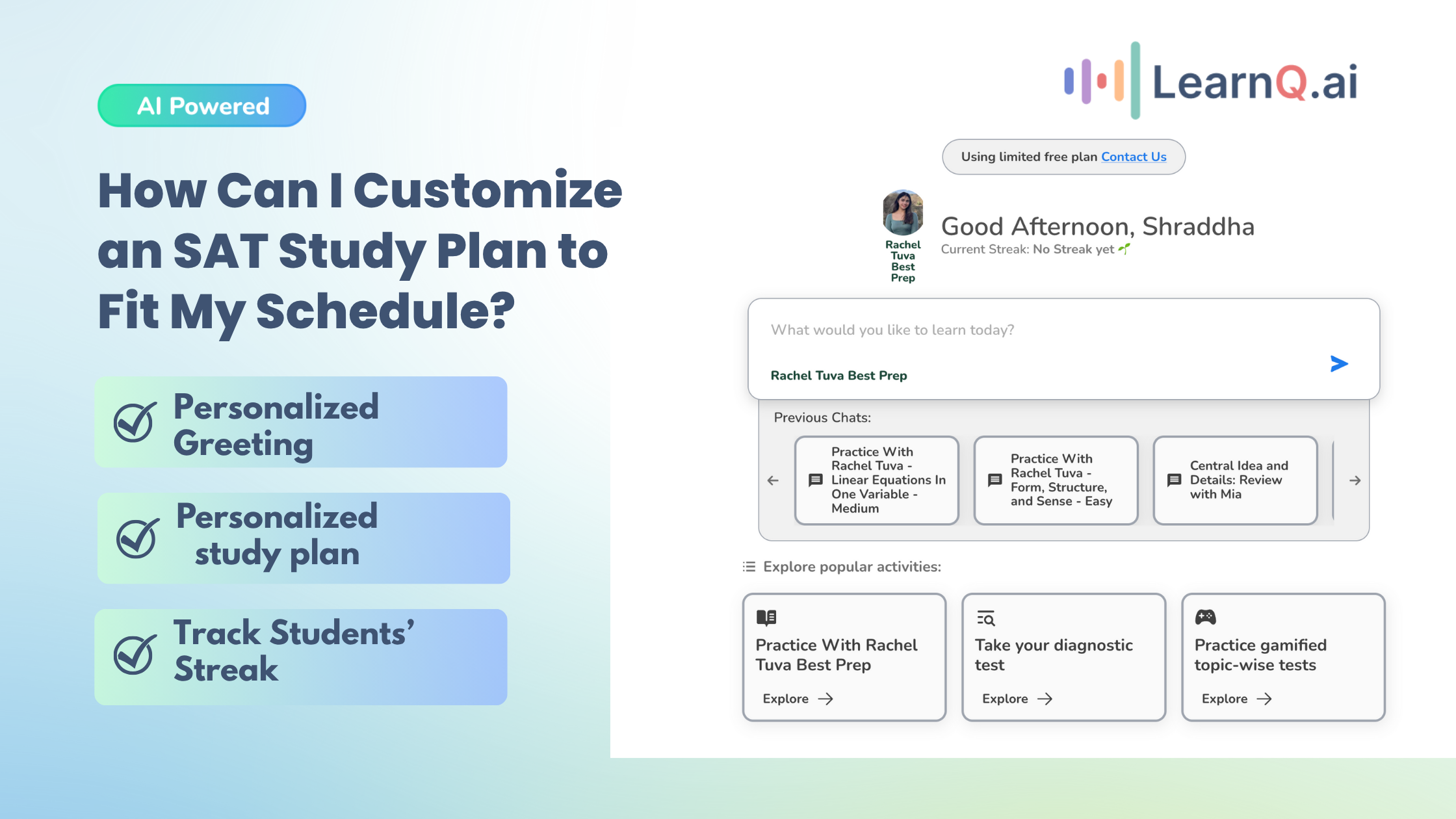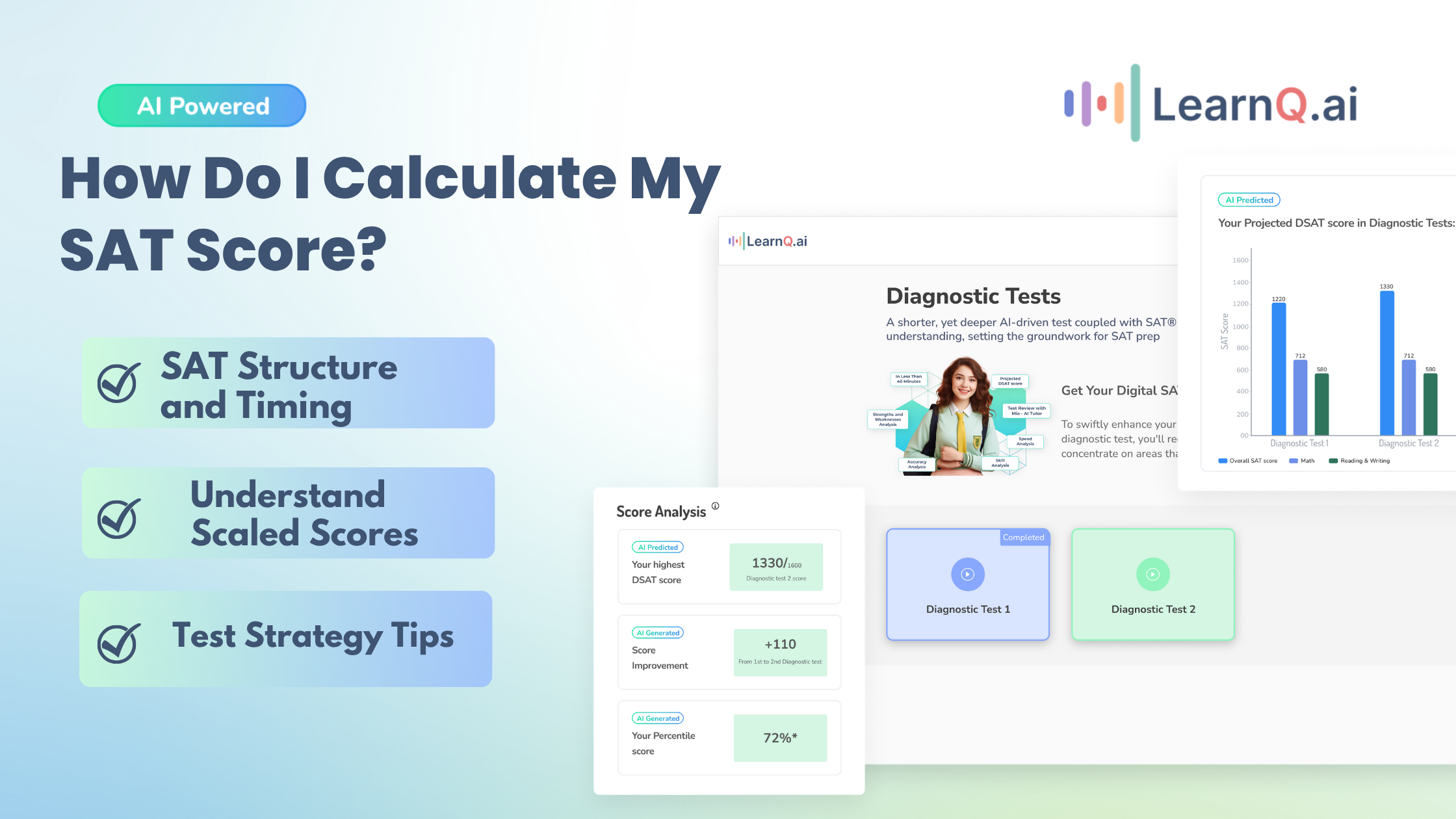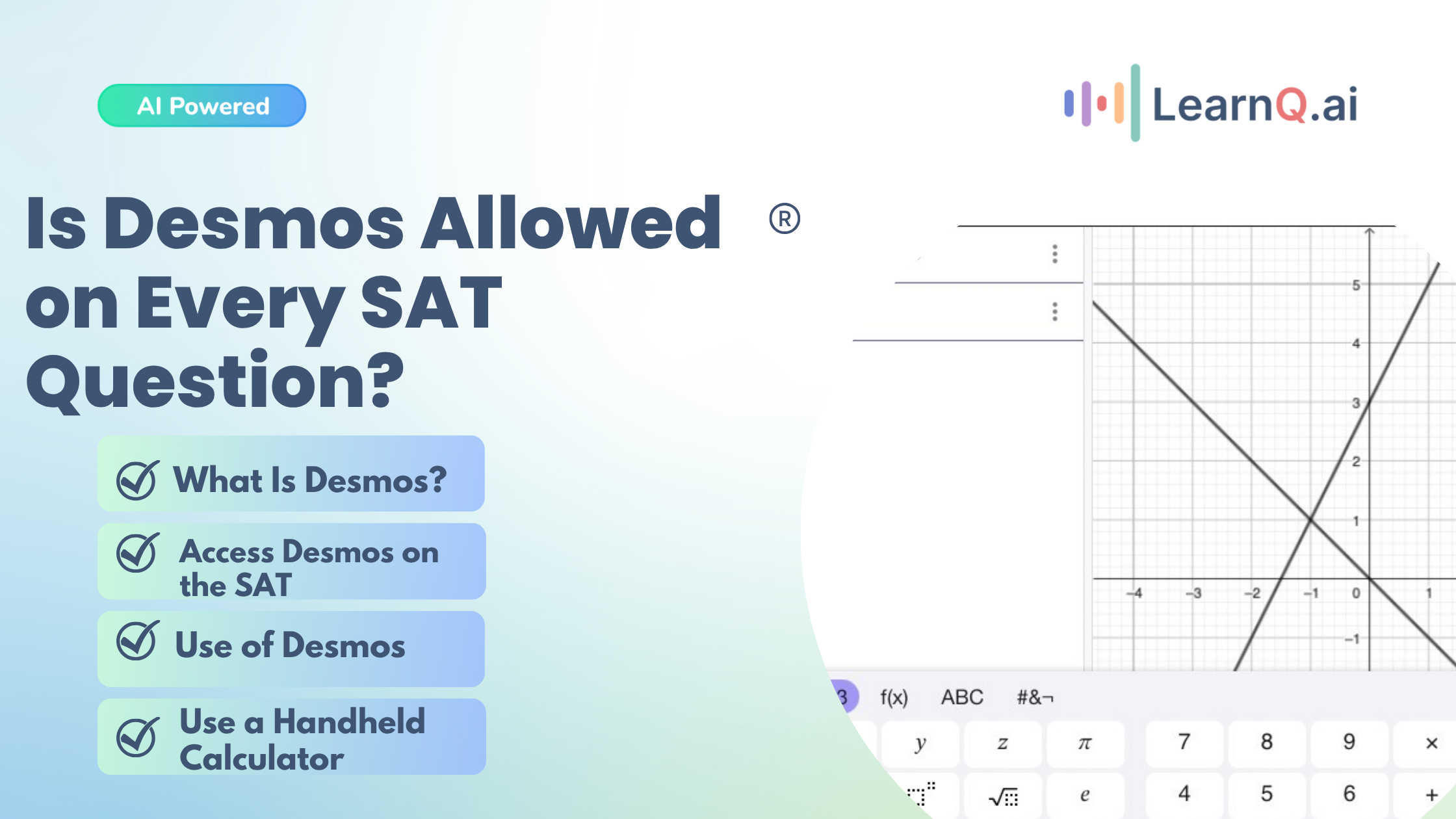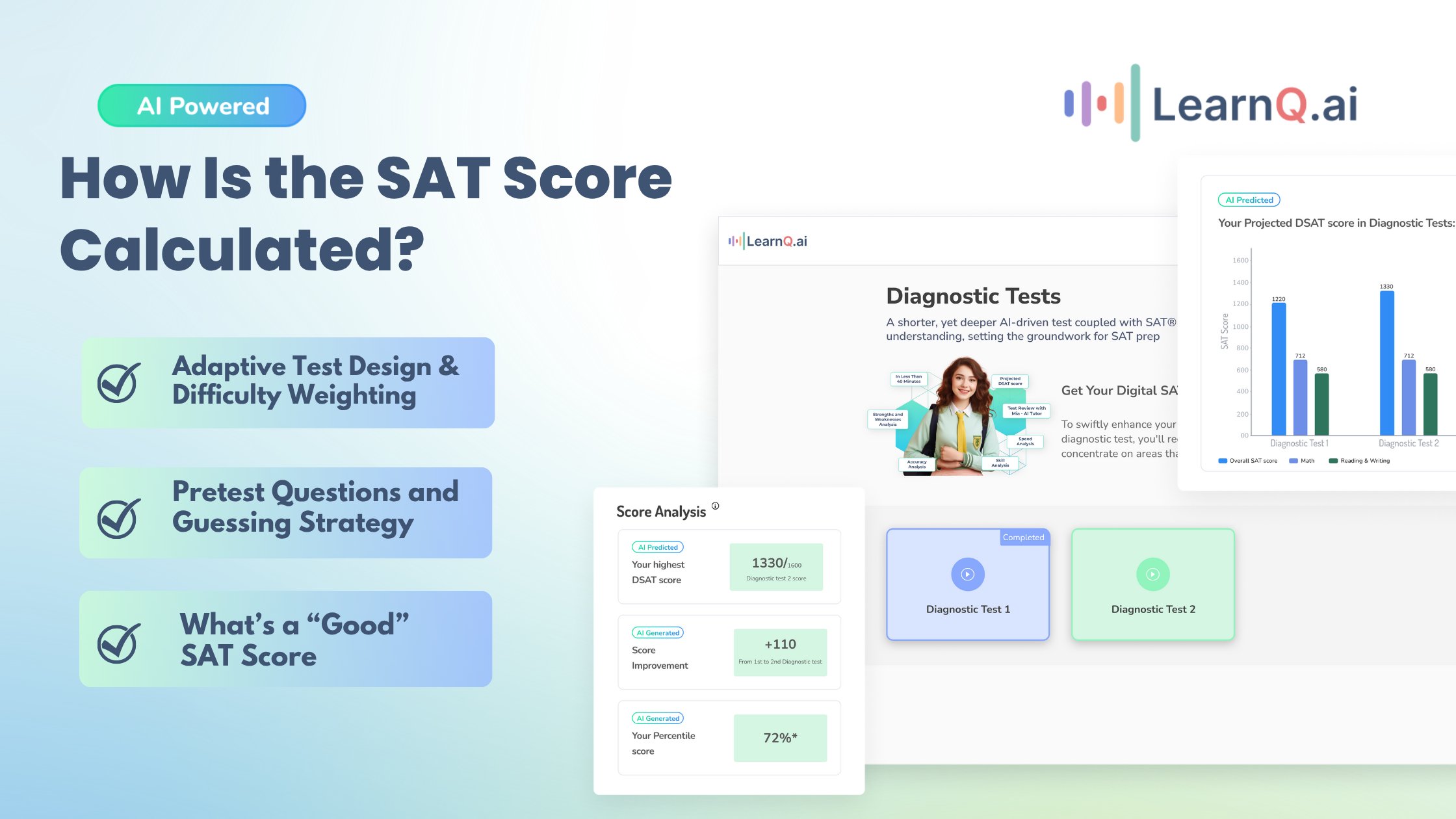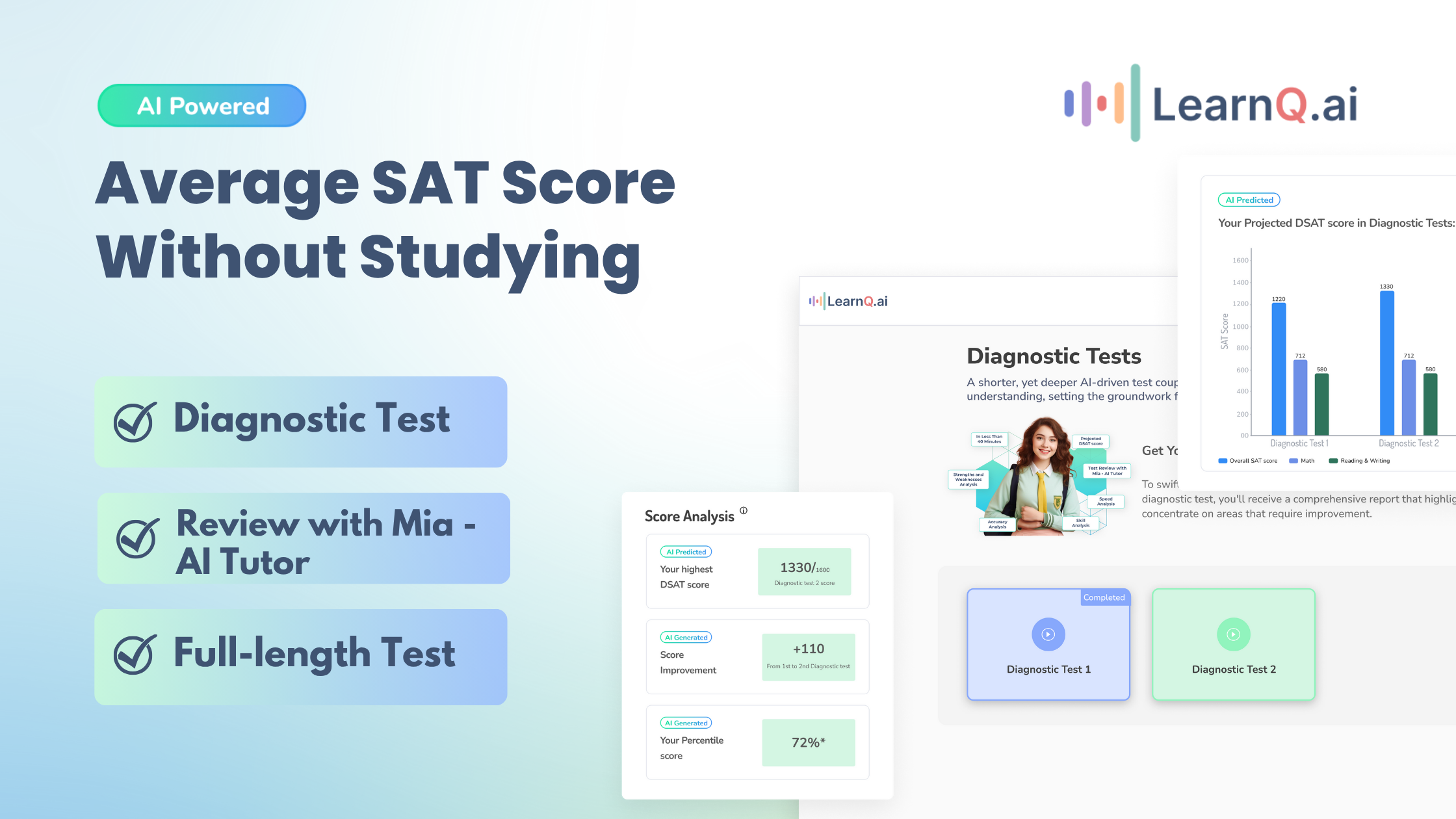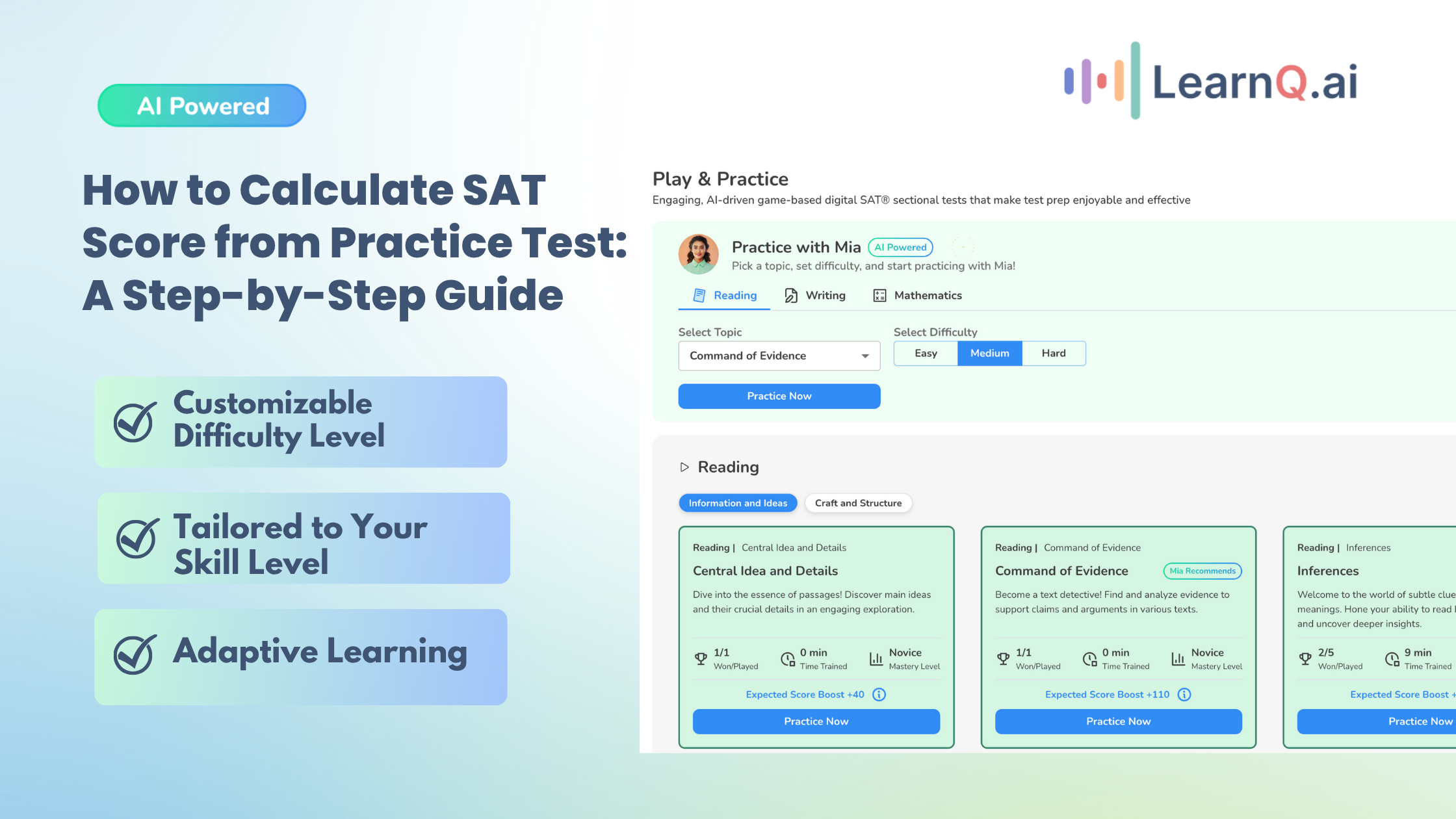You’re standing at the threshold of the most significant milestone in your academic journey: the SATs. This exam is your gateway to college admissions and scholarship opportunities.
Now, you might wonder, “When is the best time to start prep for SAT?” The answer isn’t as straightforward as you might hope, but don’t worry — we’re here to walk you through every step.
Imagine making a journey to the top of a mountain. Just as climbers need to prepare themselves physically and mentally, you must prepare your mind for the SAT challenge.
Starting early isn’t about getting a head start for the sake of it; it’s about setting yourself up for success to achieve the scores you’re aiming for. Here’s why:
- Foundation building: The SAT will test your skills. When you start prep for SAT early, it allows you time to build a strong foundation in reading, writing, and math skills
- Stress reduction: Cramming is nobody’s friend. By giving yourself ample time to prepare, you also give yourself the gift of reduced stress. You’ll have the luxury of a more flexible study schedule, which means less anxiety and more confidence as test day approaches
- Strategic practice: When you start prep for SAT early, it lets you identify your strengths and weaknesses. With time on your side, you can tailor your study plan to focus on areas that need improvement
Also Read: Digital SAT Average Score, Validity, Total Marks
Factors Influencing the Ideal Start Time
Deciding when to start prep for SAT involves considering several key factors. Understanding these will help you personalize your prep plan for optimal results:
- Current academic commitments: Are you in the midst of challenging coursework or other significant academic commitments? It’s crucial to balance your time effectively
- Extracurricular activities: Sports, arts, volunteer work, and other activities also play a significant role in your college applications and personal growth. Consider how SAT prep fits into your overall schedule
- Test dates and college deadlines: Work backwards from your target test date and college application deadlines. Ideally, you should start prep for SAT at least six months in advance, allowing time for potential retakes
- Personal learning pace: Everyone learns at their own pace. Reflect on how you’ve tackled academic challenges in the past to estimate a realistic prep timeline for yourself
Determining the Best Time to Start Prep for SAT
Knowing when to start prep for SAT can feel like solving a complex puzzle. But don’t worry — we’re here to help you piece it together.
Whether you’re a forward-thinking 9th grader or a busy Junior, the right time to start prep for SAT is more about your personal academic journey than a one-size-fits-all answer.
Start Early: 9th or 10th Grade
Think of your SAT prep as a marathon, not a sprint. Starting in 9th or 10th grade might seem early, but it’s a strategy with several advantages:
- Build skills over time: Early preparation allows you to gradually build the reading, writing, and mathematical skills that are crucial for the SAT
- Integrated learning: As you progress through high school, the concepts you study in your classes can reinforce your SAT prep, making your learning process more holistic and less about rote memorization
Summer Before Junior Year: A Strategic Pivot
Summer offers a unique opportunity for intensive study without the distraction of schoolwork.
Here’s why the summer before Junior Year is an ideal time to start prep for SAT:
- Focused study time: With the break from your regular school routine, you can dedicate more time to SAT prep without overloading your schedule
- Early diagnosis: Use this time to take practice tests and identify areas for improvement, setting a focused study plan for the coming months
- Momentum into junior year: When you start prep for SAT in the summer, you’ll enter Junior Year with a strong foundation, ready to tackle more advanced topics
End of Junior Year: For Some, an Ideal Beginning
Starting SAT prep at the end of Junior Year makes more sense for students who’ve just completed crucial coursework. Here’s why:
- Curriculum completion: If certain subjects essential for the SAT were part of your Junior Year, you’ll have freshly covered the necessary material, making it easier to transition into focused SAT prep
- Informed focus: Having completed more of your high school curriculum, you’ll have a better understanding of your academic strengths and weaknesses.
LearnQ.ai is Powered by VEGA AI—Is your Institute Next?
Give students a Duolingo-style test-prep platform with Shopify-level customization for tutors and institutes.
How Long Do You Need to Study for the SAT?
Deciding how much time you’ll need to prepare for the SAT is like preparing for a marathon. Just as runners train based on their current fitness level and marathon goals, your SAT prep should be tailored to your initial performance and your score objectives.
Recommended Study Duration Based on Initial Performance
First things first, let’s talk numbers in your journey to start Prep for SAT. How long should you actually spend preparing for the SAT? While there’s no one-size-fits-all answer, here are some guidelines to consider.
- Starting Point
Begin with a practice test to assess your current level. Your initial score gives you a clear starting line.
- Target Score
Determine your target score based on your college aspirations. The gap between your initial and target scores will guide your prep time.
- Hours Per Week
Generally, improving by 200 points might require around 40 hours of study. To break this down, consider the following:
- If aiming for a modest improvement (100-200 points), consider dedicating 3-5 hours per week over several months
- For more significant improvements (200-300 points), you might need to allocate 6-10 hours per week
Setting a Realistic Study Schedule
When you start prep for SAT, your study schedule will be your roadmap to success. It’s about balancing ambition with realism. Here’s how to approach it:
- Short-term vs. long-term: Decide whether you’re more suited to a high-intensity short-term schedule or a gradual long-term plan. Both have merits, but your personal and academic commitments will play a significant role in this decision
- Consistency over quantity: Consistency is key regardless of the intensity of your study plan. Regular, focused study sessions are more effective than cramming sessions
How to Adjust Your Study Plan?
- Performance analysis: Regularly taking practice tests will highlight your strengths and weaknesses. Use this feedback to fine-tune your focus areas
- Adaptation: If you’re not seeing the expected progress, it might be time to adjust your study strategy
- Staying motivated: Adjusting your plan can also prevent burnout and keep you engaged
Finding preparing for the digital SAT harder than anticipated? Explore LearnQ.ai’s play and practice feature. We use gamification to make learning fun and engaging.
Setting Your SAT Prep Goals
If you start prep for SAT without clear goals, you’re setting yourself up for a disaster. Setting specific, achievable objectives gives you direction and helps measure your progress. Let’s outline how to establish these vital goals.
- College research: Investigate the average SAT scores of admitted students to your desired colleges. These scores give you a target range to aim for
- Personal schedule: Consider your current commitments. Balancing academics, extracurriculars, and SAT prep means finding a harmonious schedule that doesn’t lead to burnout
- Incremental goals: Break down your main goal into smaller, manageable milestones. Celebrating these smaller victories keeps motivation high
Planning for Different College Ambitions
Your dream college isn’t just a place; it’s a goal that influences how you start prep for SAT. Whether you’re aiming for the Ivy League or a state university, your college aspirations dictate the approach you must adopt in your SAT preparation journey.
Let’s break down how these ambitions shape your study plan.
College Goals and SAT Study Plan Intensity
The bridge to your college dreams is built on the scores you achieve. Here’s how your ambitions affect your preparation:
- Intensity and length: Aspiring to highly selective colleges requires not just meeting but exceeding their SAT score averages. This often means a more intense and prolonged study period to achieve top-percentile scores
- Balanced preparation: For selective but not ultra-competitive schools, your prep might still be rigorous but tailored to meet specific score thresholds. This involves a balanced focus on all test sections and a moderate study schedule
- Personalized approach: If your target schools are less selective, your study plan might emphasize achieving a solid, above-average score that strengthens your overall application, focusing more on showcasing your strengths
Study Strategies by College Selectivity
Ivy League/Highly Selective Schools
These institutions often look for scores in the top percentiles. A targeted approach, possibly including an AI tutor, can be beneficial.
Focus on mastering advanced concepts and test-taking strategies, and consider dedicating more hours per week to study.
When you start prep for SAT to get into an Ivy League school, LearnQ.ai can help. Our platform offers the help of a very interactive AI tutor, Mia. Mia is powered by GPT-4 technology and uses real-time internet and the platform’s extensive library of 10,000+ SAT practice questions to give you detailed answers for every question you ask her.
Also Read: Digital SAT Practice Questions and Resources
Enhance your Digital SAT study routine with AI-driven insights and personalized practice tests.
Selective Schools
Preparation for these schools still demands a strong performance but allows for a more flexible approach.
Aim for scores well above the national average, emphasizing the sections most relevant to your intended major.
Less Selective Schools
The goal is to demonstrate competency and potential. A self-guided study plan, reinforced with online resources and practice tests, may suffice.
Focus on achieving a balanced score that complements your academic record and extracurricular achievements.
Making the Most of Your SAT Prep Time
When you start prep for SAT, your time will be a finite resource. How you mine and refine this resource can significantly impact your final scores. Here’s how to ensure you’re making the most of every study session.
Take Diagnostic Tests to Map Your Prep Journey
When you start prep for SAT, taking an initial diagnostic test should be your starting point.
LearnQ.ai lets you take a diagnostic test and makes the scores available within 40 minutes. The best part? The questions you solve in our diagnostic test are precise to the level of the bluebook.
Take Ongoing Assessments
The score you get through a diagnostic test measures where you currently are. You need to take more practice tests to walk the miles between where you are and where you want to be.
LearnQ.ai has many such practice tests (both full-length and sectional) that will prepare you thoroughly for the new format of the digital SAT.
Focus on Identifying Patterns
Look for patterns in the questions you got wrong. Are they from a particular content area or question type? This insight allows for targeted practice, turning weaknesses into strengths.

Understanding What’s Tested on the Digital SAT
When you start Prep for SAT, you first need to know what you’re dealing with. This becomes even more crucial now that the SAT has gone digital. The interface is new, and so is the nature of the test—it’s adaptive now!
Here’s a detailed breakdown of the digital SAT examination. Have a look!
Structure and Scoring
- Duration: The test takes approximately 2 hours and 14 minutes, excluding breaks
- Sections: ‘Reading and Writing’, and ‘Math’. Each section is divided into two modules. The adaptive nature of the test tailors the second module based on your performance in the first
- Scoring: Scores range from 400 to 1600, combining the results of the two sections (200-800 per section)
Reading and Writing Section
- Duration and questions: This section is allotted about 64 minutes, with the number of questions typically around 54, distributed evenly across the two modules
- Content: Includes passages from a broad range of sources, such as contemporary literature, historical documents, and scientific articles, designed to test comprehensive analytical skills and grammar
- Adaptive testing: The difficulty level of the second module’s questions is adjusted based on your performance in the first module, making your experience of the test unique
Math Section
- Duration and questions: Approximately 70 minutes are given to complete this section, with about 44 questions in total, evenly split between the two modules
- Content areas: You will be tested for your skills in algebra, problem-solving, and the ability to analyze and interpret data
Also Read: The Digital SAT Exam Details: Structure and Duration
Additional Resources and Support
Armed with the knowledge of the digital SAT’s structure, you can now tailor your study strategy more precisely.
LearnQ.ai can help. Our platform offers tools that will highlight areas for improvement so you can adjust your study plan accordingly.
But that’s not all.
- You can also use our platform to familiarize yourself with the SAT’s digital interface
- Our practice tests mimic the interface of the actual Digital SAT paper with similar in-built tools such as the Desmos calculator, timer, flashcards, formula sheets, and drag-and-drop and section highlight features
LearnQ.ai is powered by VEGA AI—Is your institute next?
Offer students a Duolingo-style test-prep platform with Shopify-level customization for tutors and institutes.






Conclusion
When you start Prep for SAT, have clearly defined objectives and goals—identify the scores you will need to get into your dream college, know your weak areas and curate a study plan to turn those weaknesses into strengths, and, most importantly, don’t underestimate the value of mental and physical well-being in your preparation strategy. Balanced nutrition, regular exercise, and adequate rest can significantly impact your cognitive function and test performance.
Schedule regular practice sessions, track your progress through practice tests, and adjust your study focus based on the insights gained from digital tools at LearnQ.ai – book a free demo with our experts today and learn how to use the AI-integrated tools we offer to amp up for digital SAT preparation.

